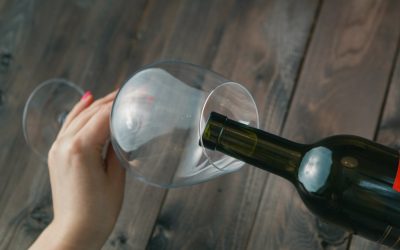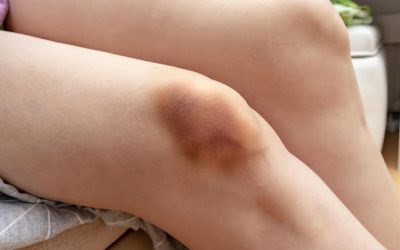This chain reaction of inflammation explains why and how alcohol (or anything that inflames the skin) makes oily skin worse, not better. If you notice that your eczema symptoms are getting worse, you may want to keep a journal to track your body’s response to what you’re eating and drinking. Note the type of alcohol you’ve had and whether certain amounts or types change the intensity of your symptoms.
- Congeners are chemicals produced during the fermentation process that contribute to the taste and smell of alcohol – and they’re the main culprit for a hangover.
- Research shows that extensive bruising can arise among alcoholics because of scurvy, caused by a severe deficiency of vitamin C.
- If you know there’s going to be more than one margarita on the cards, a little prep beforehand could come in handy for the following day.
- We talked to board-certified dermatologists to help you make the decision that’s best for the health of your complexion.
General Reminders for People Living With Liver Damage
Before we out the bad alcohols, let’s understand how to differentiate the bad from the good. Celebrity esthetician Renée Rouleau adds that vitamins A1 (retinol) and E are actually alcohols, too, and are beneficial to the skin’s overall surface. Heavy drinking reduces options http://rupest.ru/ppdb/4-tert-butylphenylethyl-alcohol.html for treatment of psoriasis, as some medicines are contraindicated if the drinking has led to liver disease (methotrexate) or to high levels of triglyceride (acitretin). Patients with psoriasis and high alcohol intake are also more likely to suffer from depression.

How Does Drinking Alcohol Affect Your Skin?
Additionally, alcohol consumption can impair the liver’s ability to detoxify the body, leading to the accumulation of toxins that can manifest as skin issues like acne and redness. When it comes to skin care, there https://scooterclub.by/nforum/viewforum.php?f=21&start=75 are many tried and tested methods that have shown some proof in making positive, or negative effects. For many years, healthcare professionals have looked into how we can protect and nurture healthy skin.
Water retention leads to puffiness.
In the short term, drinking alcohol can cause dry skin, flushing, dark circles, and decreased elasticity. The Revolution Skincare Suite incorporates high-quality, natural ingredients known for their hydrating, anti-aging, and rejuvenating properties. By focusing on alcohol-free formulations, Seratopical Revolution Suite ensures gentle care that supports the skin’s natural barrier, improves texture, and enhances overall complexion.
Rubbing alcohol may cause damage to the skin barrier and should not be commonly used in a skin care routine. As well as drying out the skin, rubbing alcohol may make the skin red, tight and even start to flake. Skin irritation may occur, leaving your skin dryer than when you started. While many types of alcohol can be harsh and dry to the skin, certain « good » alcohols, known as fatty alcohols, can be beneficial. Fatty alcohols, such as cetyl alcohol, stearyl alcohol, and cetearyl alcohol, are derived from fats and are used in skincare formulations as emollients and thickeners. These alcohols help to moisturize and soften the skin by creating a protective barrier that prevents moisture loss.
- As with denatured alcohol, rubbing alcohol does not smell very nice.
- The colour, known as jaundice, is due to bilirubin, a product broken down from haem derived from red blood cells.
- Like any type of alcohol, white wine is best enjoyed in moderation—especially if you want to keep your skin in tip-top shape.
- The antioxidants found in beer are limited and it should still be drunk in moderation.
- Blood vessels (the spider legs) radiate out in all directions from a central blood vessel (its body).
- Excessive dehydration from alcohol might not seem like a big deal in the short term.

If you quit drinking altogether, conditions exacerbated by frequent alcohol use are likely to improve. If you have rosacea, you’ll no longer have flare-ups caused by drinking. While no studies have directly linked alcohol cessation with reduced symptoms of psoriasis, anecdotal evidence suggests that it leads to improvement. Dehydration caused by chronic alcohol use may lead the skin to overproduce sebum, the naturally occurring oil in your skin. Alcohol’s inflammatory effect impairs the immune response, which increases your susceptibility to bacterial infection.

The amount of alcoholic beverages you enjoy really doesn’t matter if you’re intolerant to alcohol, so that glass of wine could be enough to cause your face to flush. ‘The exfoliator non-selectively removes healthy surface skin cells and their lipid layers, something the skin has https://mikszona.ru/muzyka/rokhard-rok/28428-lust-and-love-rock-hard-revue-2017.html spent the last month making,’ says Dr Patterson. This explains random breakouts and any sensitivity you may be experiencing, as your skin barrier is weakened. Severe dryness is also a sign that your pH level is off-balance, indicating that your acid mantle is too alkaline.
- Even drinking a little too much (binge drinking) on occasion can set off a chain reaction that affects your well-being.
- “Alcohol causes dehydration, and dehydration can cause the skin to look pale, dry, and more prone to wrinkling,” board-certified dermatologist and founder of MaeiMD Rebecca Marcus, M.D.
- Transient flushing is also a common side effect of alcohol, particularly in heavy drinkers.

Commentaires récents